Pierre Maret
Towards a Question Answering System over the Semantic Web
Mar 02, 2018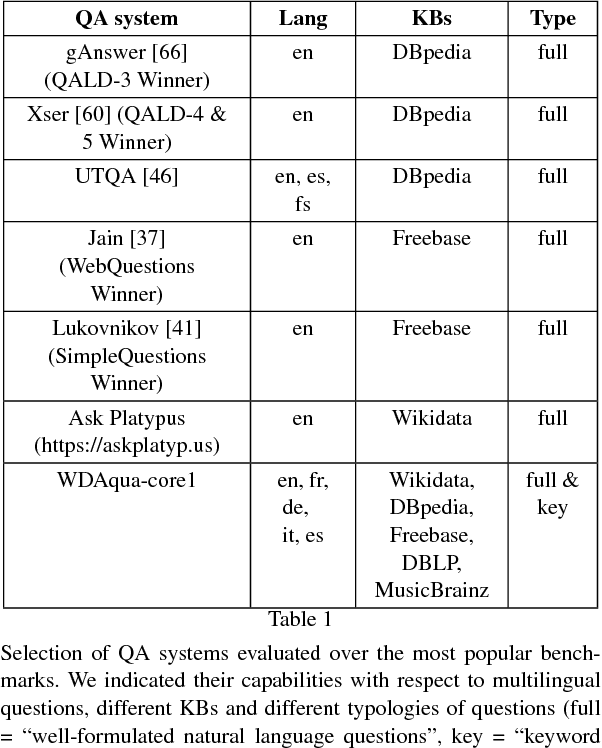
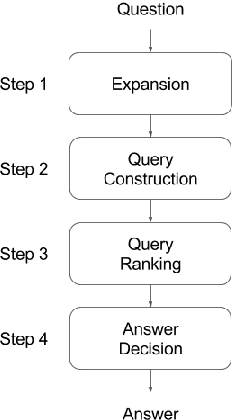
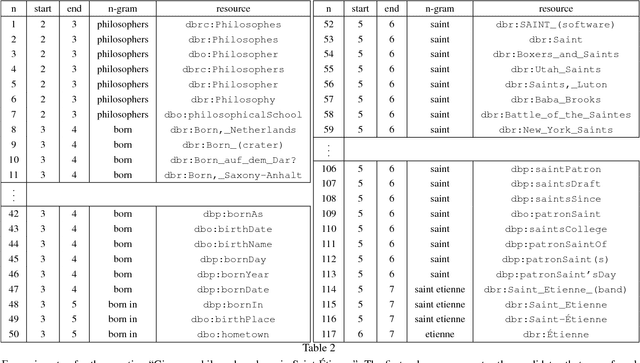
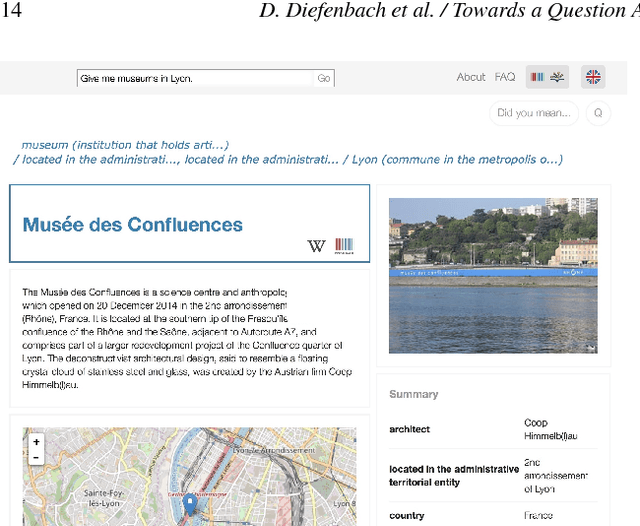
Abstract:Thanks to the development of the Semantic Web, a lot of new structured data has become available on the Web in the form of knowledge bases (KBs). Making this valuable data accessible and usable for end-users is one of the main goals of Question Answering (QA) over KBs. Most current QA systems query one KB, in one language (namely English). The existing approaches are not designed to be easily adaptable to new KBs and languages. We first introduce a new approach for translating natural language questions to SPARQL queries. It is able to query several KBs simultaneously, in different languages, and can easily be ported to other KBs and languages. In our evaluation, the impact of our approach is proven using 5 different well-known and large KBs: Wikidata, DBpedia, MusicBrainz, DBLP and Freebase as well as 5 different languages namely English, German, French, Italian and Spanish. Second, we show how we integrated our approach, to make it easily accessible by the research community and by end-users. To summarize, we provided a conceptional solution for multilingual, KB-agnostic Question Answering over the Semantic Web. The provided first approximation validates this concept.
Toward a new instances of NELL
Oct 11, 2016

Abstract:We are developing the method to start new instances of NELL in various languages and develop then NELL multilingualism. We base our method on our experience on NELL Portuguese and NELL French. This reports explain our method and develops some research perspectives.
NdFluents: A Multi-dimensional Contexts Ontology
Sep 22, 2016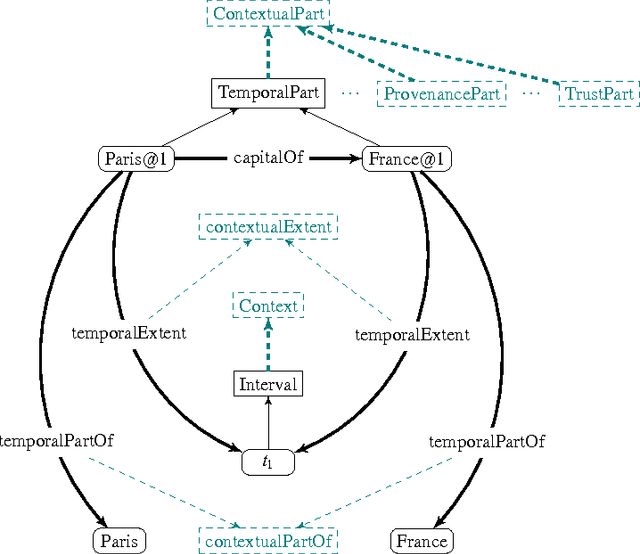


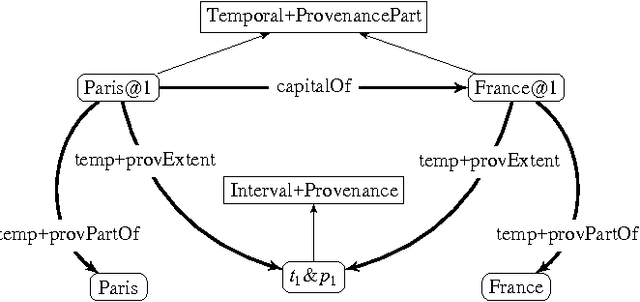
Abstract:Annotating semantic data with metadata is becoming more and more important to provide information about the statements being asserted. While initial solutions proposed a data model to represent a specific dimension of meta-information (such as time or provenance), the need for a general annotation framework which allows representing different context dimensions is needed. In this paper, we extend the 4dFluents ontology by Welty and Fikes---on associating temporal validity to statements---to any dimension of context, and discuss possible issues that multidimensional context representations have to face and how we address them.
 Add to Chrome
Add to Chrome Add to Firefox
Add to Firefox Add to Edge
Add to Edge